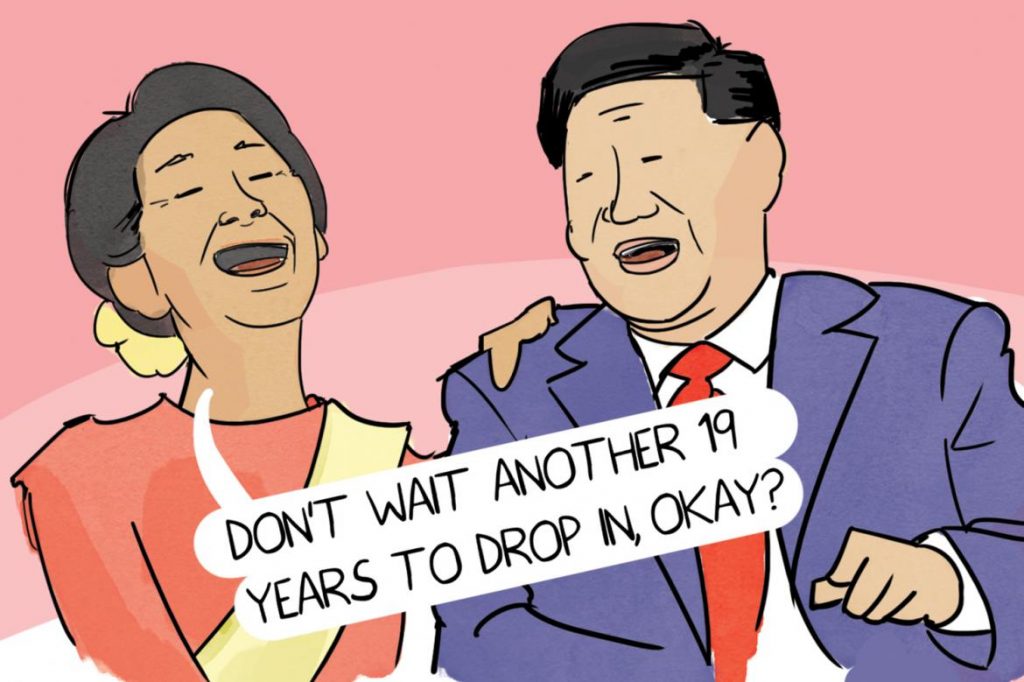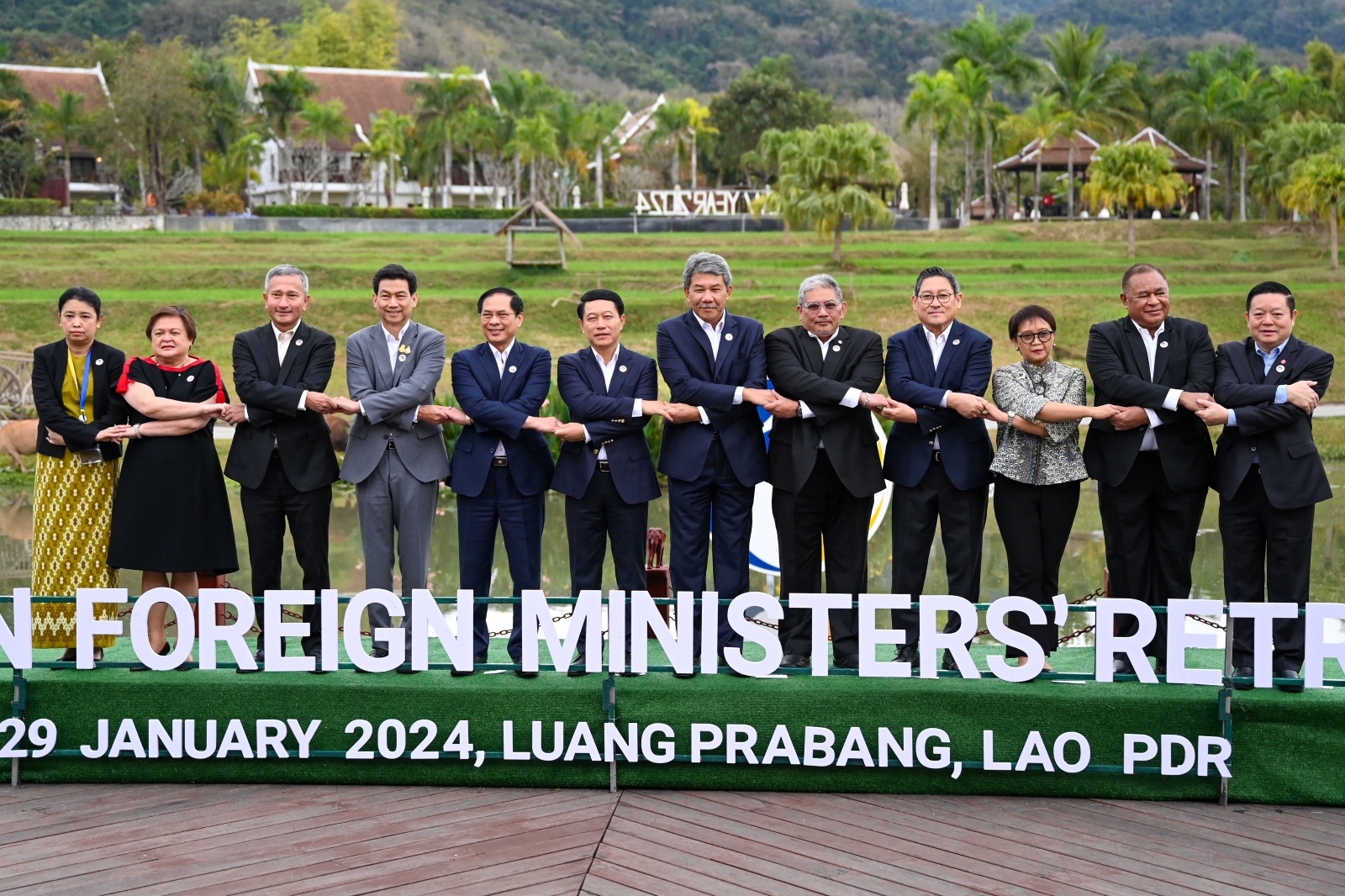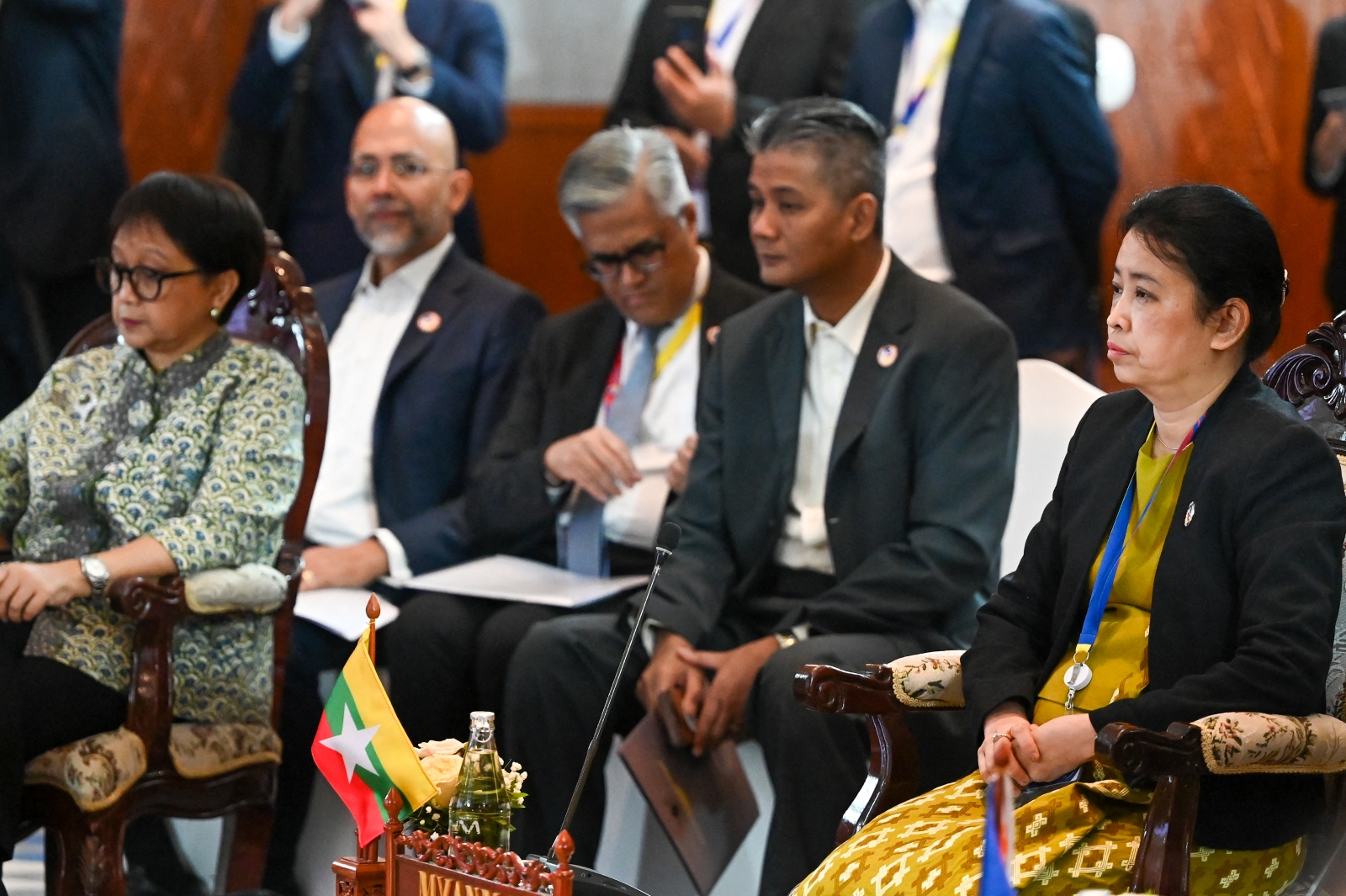It’s tempting to see Xi Jinping’s recent visit as China coming to collect on an IOU, and Myanmar not having much choice but to pay up.
Yes, China continues to offer Myanmar diplomatic protection over the Rohingya crisis, heading off any move to bring the matter to the United Nations Security Council.
Yes, China is the most influential external player in the peace process, and perhaps holds the key to bringing stability, if not peace, to northern Myanmar.
And yes, Myanmar did sign two agreements for the Kyaukphyu Special Economic Zone, which Beijing desperately wants to advance as one “pillar” of the China-Myanmar Economic Corridor.
There is definitely a quid pro quo going on, and it’s one that many in Myanmar are not necessarily comfortable with.
But to suggest the relationship is that simple does both countries a disservice. Myanmar is not a client state; it’s domestic political dynamics and ingrained caution of outside influence make sure of that. Similarly, Chinese protection is not without its limits – Myanmar does not have carte blanche to ignore the concerns of the rest of the international community.
Support more independent journalism like this. Sign up to be a Frontier member.
The complexity of Myanmar-China relations is instead reflected in the breadth of the 33 agreements signed during Xi’s visit, which ranged from economic projects like Kyaukphyu, the Mee Linn Gyaing power project and New Yangon City, to support for the resettlement of Kachin IDPs and the (official) opening up of China to Myanmar agricultural and livestock exports.
The agreements do not give the appearance of a one-way relationship, with China asking and Myanmar automatically giving. Some of the deals reflect Chinese priorities, while others appear to be of greater benefit to Myanmar. As always, the proof will be in the execution.
The single most toxic ingredient in the relationship, the stalled Myitsone Dam in Kachin State, was conspicuously off the agenda. The Myanmar government was previously given to believe that Xi was refusing to visit the country pending a resolution on the dam, so this likely represents an important concession by China.
The suggestion, too, that Myanmar has been “lost” to China, that it needs to “choose” between China and any other country, or that it should scale back its relationship with China, is unhelpful.
The countries share a 2,000-plus-kilometre border and longstanding cultural ties. China is Myanmar’s single most important economic partner and offers significant opportunities. The relationship is complex, and there is plenty of baggage, but it’s indispensable.
Equally unhelpful, though, is the idea that the fallout from the Rohingya crisis shows that Myanmar can only rely on China for support.
Myanmar has prided itself on a neutral, balanced foreign policy since independence, and it should seek to continue this. Its international relations should not be a zero-sum game.
Xi’s visit elevates bilateral ties with China into a new era, but it does not preclude Myanmar from building and maintaining positive relations with other countries, even its harshest critics. If the door to doing so appears closed, it is only because Myanmar has slammed it shut.
The Rohingya crisis has indeed done Myanmar immense damage. But it’s not fair to say that the rest of the world has turned its back on Myanmar. Given the gravity of what appears to have transpired in Rakhine State in August and September 2017, most countries adopted a moderate response, seeking to give the government the time and space it needed to take appropriate action.
It was Myanmar’s subsequent mishandling of the Rakhine crisis – its flat denial of any atrocities, its refusal to properly investigate, and its unwillingness to address the root causes – that prompted a tougher line.
There is no need to be fatalistic about the direction of Myanmar-China relations. If Xi’s visit has shown us anything, it is that even at a moment of apparent weakness, Myanmar is still the master of its own destiny.







